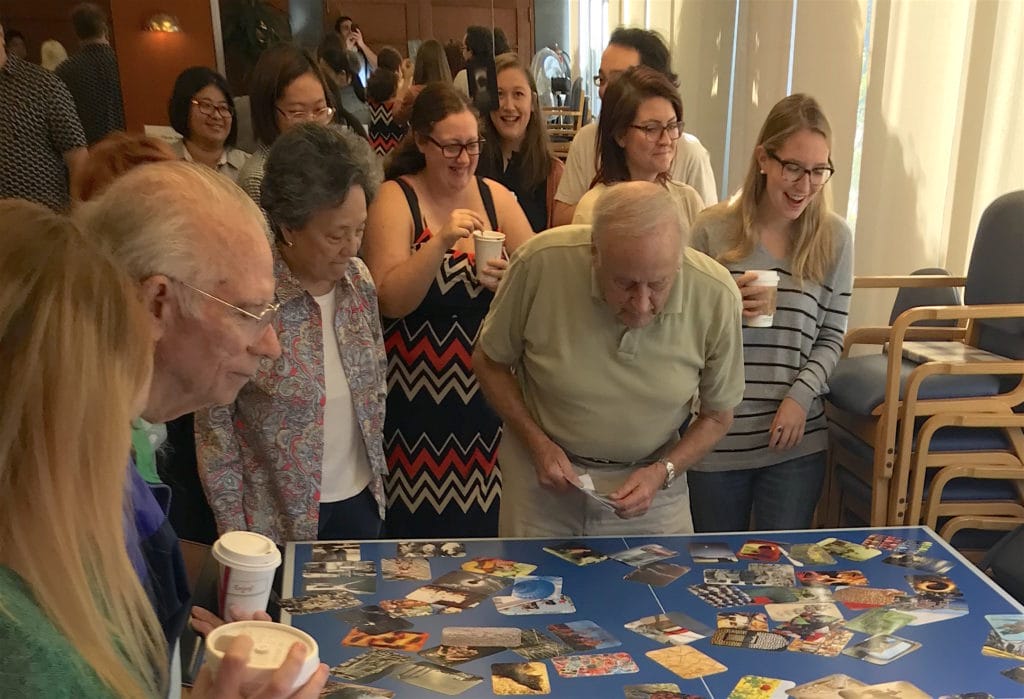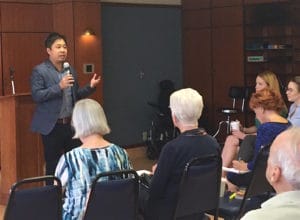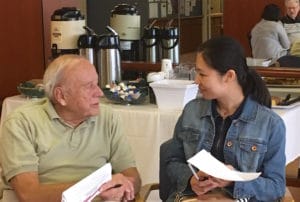Gardeners of Wisdom: Learning the Value of the Examined Life

Can you name a key event or relationship that has had a lasting influence on you?
For Assistant Professor of Organizational Psychology Jeffrey Yip, his was a speech by the late Leonard Nimoy at Boston University when Yip was a graduate student there.
Nimoy addressed the students with a story about his budding, struggling years as an actor in 1950s Los Angeles. Nimoy spent his days auditioning for roles, and his nights driving a taxi. One evening, he picked up a Massachusetts senator in Bel Air. His name was Jack, Nimoy said:
“We chatted about careers … politics and show business, and we agreed that both had a lot in common. Maybe too much in common. He said, ‘Lots of competition in your business, just like in mine.’ And then he gave me this: ‘Just remember there’s always room for one more…’ “
Those words spoken by our future 35th president, John F. Kennedy, were among Nimoy’s motives for staying in LA to ultimately land his iconic role as Spock at age 35. Kennedy’s final statement is something that Yip introduces in his course on Jobs, Careers, and Calling, which is offered through CGU’s Positive Organizational Psychology and Evaluation master’s program.
In late October, Yip and his students visited Mt. San Antonio Gardens, a nationally-recognized life care community more affectionately referred to as “The Gardens,” as a part of Yip’s class. Located not far from CGU, the facility houses more than 500 residents, 31 gorgeous acres of real estate, and one mission: “To provide the ideal base from which its residents launch new adventures and enjoy the richness of life.”

Residents of The Gardens—many of whom are alumni of CGU and the Claremont Colleges—volunteered to be the subjects of Yip’s students for a morning symposium on wisdom and the examined life.
The day started in the facility’s Wellness Center with a random assortment of photographs—ranging from all walks of life, from religious imagery to archaeology, scenes of nature, and architecture, to name a few—scattered across a table. Residents and students were asked to pick an image that best represented wisdom in their eyes.
The participants then shared their choices in a setting akin to a campfire chat, a circle. Their diverse selections made one thing evident, as one resident put it, that “Wisdom comes in all shapes and sizes.”
The day continued with the chief purpose of the workshop: 1-on-1 interviews in which residents were asked about one or two key events that have shaped who they are today, and the lessons learned from these experiences. The groups traveled to all parts of the room and the adjoining hall to engage in intimate conversation about life-journeys that have made an enduring impact.

What resulted was an endearing colloquy on the nature of human experience, the values learned, the insights gained. An intergenerational dialogue that was built upon the nature of the human condition—the desire to be heard, empathized with. Learned from.
Both students and residents were greatly immersed in each other’s stories, and the activity ended with yet another communicative roundtable. Concluding remarks summed up the heart of their conversations: “But you’re telling me a story that isn’t finished yet,” says one resident. “Anything that cannot defeat you will only make you stronger,” says a student.
Each account echoed the sentiments of the previous one, and the principles acquired through the truths found in storytelling led each student to appreciate their foundations as a bricklayer appreciates a home he or she built. And as a bricklayer learns from each new brick put in place, so these students learned from the residents’ novel, erudite perspectives.
Yip himself, like each participant, exhibits this desire to learn.
“What does it mean to grow in wisdom?” he asks. “Is there such a thing as wisdom? Can reflection facilitate wisdom?” Whether or not these questions have definitive answers, a certainty lies in the heart of the subject matter—we cannot gather wisdom without first learning from those who have made room for the “one more.”
Learn more about Mt. San Antonio Gardens. Learn more about Professor Jeffrey Yip and his research.